About the conference
The Jerusalem Massortiyut Conference is an annual platform for discussion and expansion of the idea of Massortiyut as a complete and dynamic worldview that offers an essential remedy for Israeli society. This is a high point in ongoing processes throughout the year for those who wish to put thought into action and influence what is happening in Israeli society and among the Jewish People.
The conference was born out of a collaboration between the Tikun movement and Yad Ben-Zv,i and was held for the first time at Yad Ben-Zvi in Jerusalem in October 2021. The second conference will deal with diverse issues on Israel’s current agenda, including education and society, statehood, the Jewish people, culture and art, and the idea of shared society. Special emphasis will be given to the city of Jerusalem as a space that maintains a unique language created by the ongoing everyday relationships between various communities and identities living together in Jerusalem over the years.
The conference consists of talks, discussions, lectures, performances, workshops and exhibitions, in a unique combination that reflects the concept of dynamic traditional inclusive culture within the structure of the conference.
The conference will be held with the collaboration and support of the Ministry of Culture and Sport, the Ministry of Jerusalem and Heritage, Jerusalem Municipality, the Jerusalem Foundation, and the Ministry for Social Equality, with the participation of organizations leading many initiatives in this field of Massortiyut in recent decades.
We see the conference as a permanent annual platform that enables deep learning, clarification, and long-term follow-up of the insights and conclusions that emerge from the discussions, in order to generate valuable processes in Israeli society and among the Jewish People.
Preparing the conference involved several concurrent stages: a Think Tank on Massortiyut among the Jewish people with the participation of foremost Jewish leaders in the United States; a think-tank addressing education and culture from a Massorti perspective; a think-tank focuseing on the perception of Massortiyut in Jerusalem; round tables dealing with the Massorti proposal for an updated Israeli statehood; a long creative process of curators and artists.
Many entities helped put together this conference from the steering committee of conference partners, think tanks, and conference staff. We would like to thank all partners for their dedication and in-depth work invested in preparing for the conference and hope that it will successfully reflect the important processes woven throughout the workspaces.
We would like to express our deep gratitude to members of the Think-tank that helped us prepare for the conference (presented here in alphabetical order):
Dr. Mijal Bitton – Scholar in Residence at the Shalom Hartman Institute in North America and Rosh Kehilla of the Downtown Minyan
Rabbi Daniel Bouskila – Head of the Sephardi Educational Center
Orly Dabush Nitzan – Manager and Founder of the New York Federation Emissary Initiative and a Former emissary of the Jewish Agency
Prof. Nissim Leon – Professor of Sociology and Anthropology at Bar Ilan University
Sarah Levin – Executive Director at JIMENA
Barak Luzon – Director of the Israeli Office and Global Relations at the Jewish Federation of San Francisco
Rabbi Jose’ Rolando (Roly) Matalon – Rabbi and head of the B’nai Jeshurun community in New York
Ashley Perry – President of Reconectar, CEO of the Heritage Center for Middle East and North Africa Jewry
English session
Massortiyut and the Jewish people – A new-old proposal for the challenges of the hour among American Jewry
Thursday – 27.10 at 17:00 (Israel Time)
Live broadcast on the website
Facilitator: Naama klar– Director of the School of Jewish Studies, Anu Museum
Speakers:
Rabbi Daniel Bouskila – Head of the Sephardi Educational Center | Tradition with a vision: Sephardi Judaism for the 21st century
Dr. Mijal Bitton – Scholar in Residence at the Shalom Hartman Institute in North America and Rosh Kehilla of the Downtown Minyan | Traditional Sephardic communities in the United States: Between Continuity & Change
Rabbi Jose’ Rolando (Roly) Matalon – Rabbi and head of the B’nai Jeshurun community in New York | The principles of Massortiyut in a liberal world and among Jews and communities that do not belong to the existing streams
Dr. Yakir Englander – Senior Director at IAC, the Israel American Council, of diversity programs and leadership education | The Jewish Identity Challenge of the Israeli Community in the United States.
Jewish tradition has developed around the world in different forms. In the Sephardi-Mizrachi communities, it can be said in general that a continuum of broad Jewish identity has been preserved, one that does not separate itself out into streams, and encompasses a wide range of identities and levels of commitment to the Halakha. In Europe, and subsequently in the United States, in recent centuries Jews mostly belong to the main streams (Orthodox, Conservative, and Reform), a division largely based on the dichotomy created within Ashkenazi Judaism, and developed as a reaction of one stream to another.
Today the Massorti Jewish identity is recognized mainly in Israel, yet in the US as well, many do not clearly identify themselves with one stream or another and are looking for a new home for their Jewish identity.
This session summarizes the discourse between partners and leaders from Israel and the United States over the past half year, regarding the place of Massortiyut in Jewish communities around the world. We sought to examine what the positive message of Massortiyut can be for individuals and different communities within American Jewry.
An old-updated proposal for a Jewish identity that does not subdivide into the existing streams and perhaps even asks for a broad Jewish definition that is not limited to one stream or another; a Jewish identity based on a long-standing continuity that does not purport or aspire to create a new stream; Judaism that maintains a natural relationship between tradition and modernity; a rich Jewish heritage and practice that gives place and expression to the various traditions from the East and the West. And what is the place of Sephardi Massortiyut in bringing a new voice to the Jewish discourse in the USA?
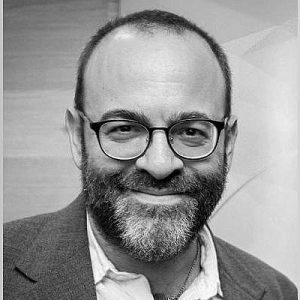
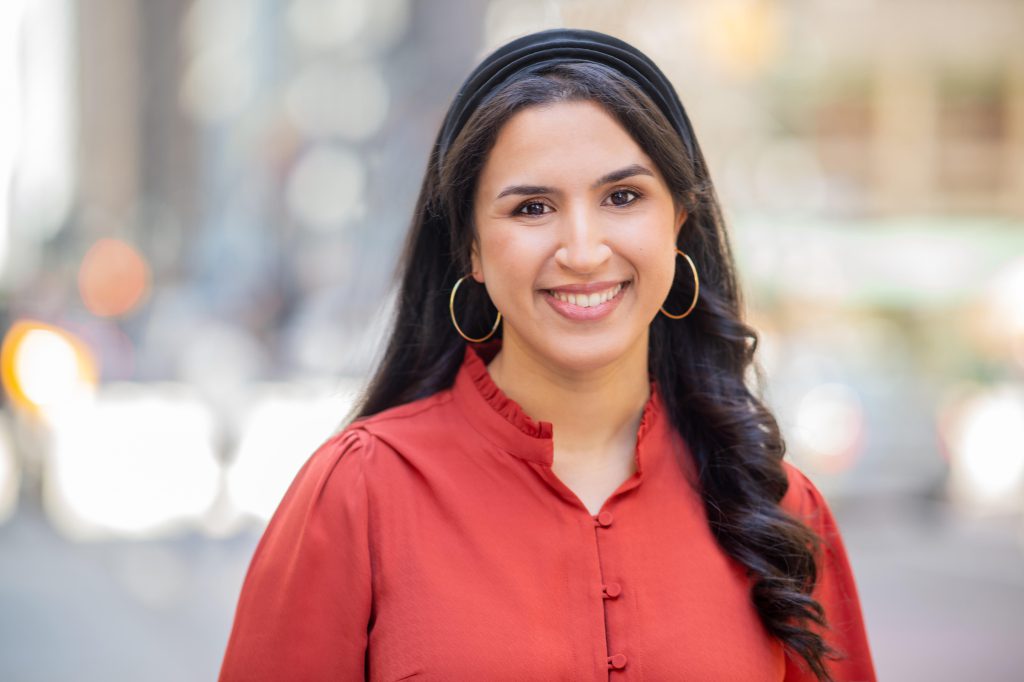
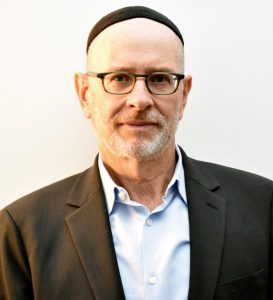

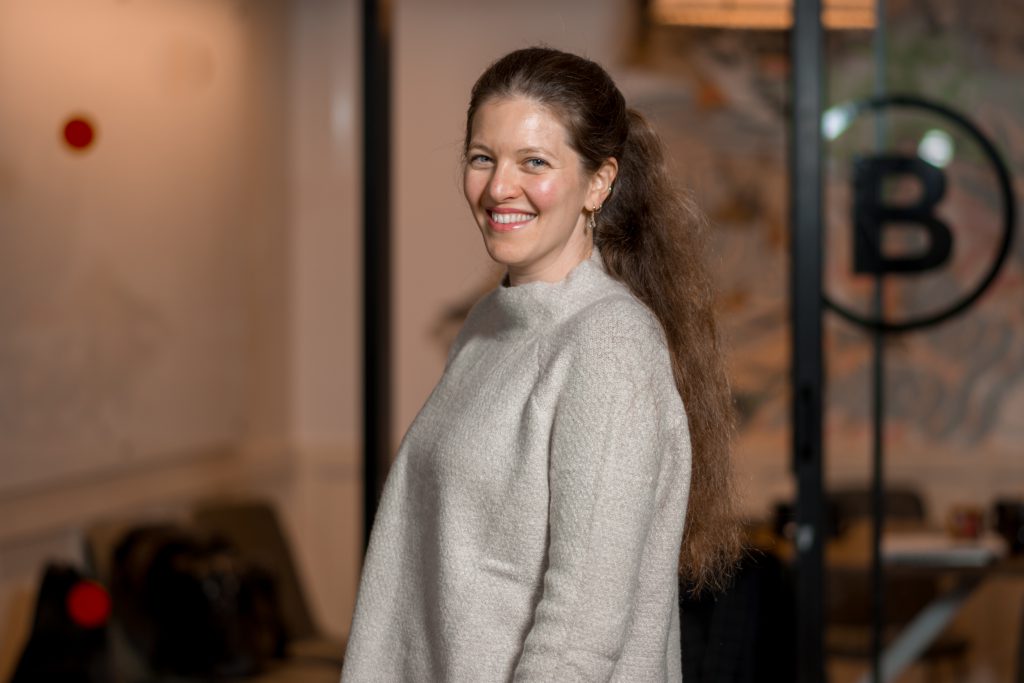
Guidelines for defining Massortiyut
We see the discussion surrounding the definition of Massortiyut and its values as a dynamic, ongoing conversation. Following the work of the research group that functioned as part of the 2021 Conference, there has been further discussion on the principles of Massortiyut together with the committee addressing the issue of Massortiyut among the Jewish People, and in particular in the communities in the USA. The principles presented here reflect the dynamic discussion conducted this year on the basis of the foundations laid at the 2021 conference.
- Tradition – Past, Present, Future
Jewish Massortiyut is a multifaceted phenomenon with individual, social, and pan-human aspects that connect the past, the present and the future. It developed into a reality across generations of Jews in the various Diaspora communities but, in particular, it developed especially in the Sephardi Jewish communities where it acquired unique characteristics.
- Non-denomination
Massortiyut does not belong to a particular denomination, nor does it pretend to be creating a new denomination. It does not negate the prevailing denominations of Judaism such as Orthodox, Conservative and Reform. On the contrary, it seeks to lay down a common platform and create ties among them that are not just ones of rivalry, variance and controversy, but rather of a common language, mutual guarantee and partnership. It seeks to be inclusive, and focuses on what unites rather than that which divides Jews. Consequently, a person may be orthodox, conservative, or not belong to any denomination, and, at the same time, recognize the value of Massortiyut. This is because of the recognition of the deep ties we have with our partners in destiny and the Jewish purpose, and out of the solidarity and brotherhood that emerge from this.
- Commitment to family – Parents and the Tradition of the Generations
Massortiyut sees value in the tradition handed down to us by our ancestors and believes that meaningful Jewish life cannot be detached from the tradition of past generations, even if the modes and directions of influence from the past on the present and the future may be debated and open to a wide range of interpretations. Massortiyut offers Jews an opportunity to connect to their roots in an inclusive, friendly, and positive environment.
- Togetherness
In the social context, Massortiyut believes in listening, integrating and including. It tries to avoid the elimination or exclusion of individuals or groups. Massortiyut seeks the path through which the circles of belonging can be expanded, avoiding judgmentalism and criticism towards different identities and attitudes of those seeking shelter beneath its wings. The value of the individual is a seminal principle that does not derive from compromise but from the initial stance.
- Cultural Diversity
Massortiyut supports multifaceted cultural and spiritual wealth emanating from a range of Jewish communities that broadens the spiritual world, prayer, ritual, poetry and music at home and in the community.
- Tradition and Modernity
Tradition is not just a value in and of itself; it also constitutes a necessary platform for innovation and creation ansd is connected to modern life. Without a normative set of values of some kind, there cannot be any real innovation. Jewish tradition, which has a rich concept of controversy and debate, is an essential resource in the ability of Massortiyut to conduct dialogue with close and more distant neighbors within the world of Jewish identities, and hence, also, with the world outside it. The overarching trend is to retain the connection of the community to tradition as far as possible, and to this end we must develop creativity, as did the Sephardi Sages, when they sought to preserve the values of the Torah while creating openness towards outside influences and modernism.
- Key Values
In terms of content, there are values, beliefs, deeds, and social institutions that have particular importance in the worldview and lifestyle of the Massorti public that include Shabbat and the various Jewish holidays, family, kashruth, Torah study, social solidarity and the pursuit of justice, the synagogue and prayer. This list itself, with what it contains and what it has omitted is dynamic and may also be controversial.
- The Torah of Life
As a rule, Massortiyut tends to shy away from rigid hierarchical rankings, i.e., from the position that all Judaism rests on one or more pillars, however important these might be. On the contrary, many Jewish sources propose different basic principles (in terms of ‘these and these are the words of the living God’) that cannot be prioritized unambiguously and without sensitivity to circumstances. Moreover, Massortiyut sees importance in making the Torah accessible to the entire community and not just to a group of learners.
- Halakha
Massortiyut seeks not to base Judaism on the halakha alone; it believes in balance and harmony between the demands of the Torah and the rigors of daily of life. Massortiyut emphasizes faithfulness to the halakha alongside moderation, correlating the halachic ideal and the importance of safeguarding a cohesive community. The halakha is one of the pillars of the Jewish religion and itself can be realized in different ways, but Judaism and its legacy are based on other pillars that draw on ‘legend’ and the basic principle that “proper behavior takes precedence over Torah”, and in which common sense and the humanist, spiritual and cultural perspectives are rich and broad. Sages and community leaders, and particularly the Sephardi sages, related in their rulings to the situation of the individual and to the implications of the ruling for the whole community. They recognized individuals and their pain and were involved in their community; they made room for the community and its leaders when giving their rulings and they functioned from a perspective of warmth and love towards society.
- Massortiyut and universalism
Massortiyut is open to human traditions wherever they may be, while recognizing not just similarities but also differences between them. These differences often pose challenges for meaningful discourse, to which Massortiyut seeks to respond with discourse characterized by a ‘backbone’ of identity alongside openness, attentiveness and readiness for an ongoing process of growth and development. The Massorti mindset believes in connecting to general culture and education, and values secular studies alongside Jewish studies, out of a desire to learn and develop and does not see any value in over-strictness and isolationism.
- Eretz Israel, Zionism and the State of Israel
Jewish tradition is closely connected to Eretz Israel, to Hebrew and to the Jewish people as a whole. It encompasses within it the Zionist view that sees Eretz Israel as the indigenous and ancestral homeland of the Jewish people, together with a deep connection among all the Jews of the world, and as encouraging the development of creation and culture everywhere where there are Jews. Just as the Babylonian Talmud and the Jerusalem Talmud drew their inspiration from each other, both constituting an essential part of the Jewish bookshelf, so too, today, Massortiyut sees importance in mutual growth among the different communities.
- Social justice and Tikun olam
Massortiyut encourages community solidarity, mutual guarantee, concern for the vulnerable, community belonging and commitment to doing justice against various evils. Jewish tradition has marked important foundations of ethics that were innovative and constituted “a light unto the nations”. This approach is our compass till today in demanding social justice. The presence of the Lord is expressed in the individual’s commitment to the Jewish people and to those close to them. After all, we must uphold “what is right and good in the eyes of the Lord”.
The full program of the conference
All the sessions are led in Hebrew except one session – Massortiyut and the Jewish people that is taking place on Thursday October 27th at 5pm (Israel time).
Tuesday – 25.10.22
Tuesday – 25.10.22
Morning session 09:30 – 11:30 Traditionalism – new perspectives – Opening session
Noon tour 12:00 – 13:30 From the end of the West to the heart of the East Maghreb Jewry in Jerusalem
Noon session 12:00 – 13:30 Root and flower Massorti culture and heritage organizations
Lunch & performance 13:30 – 15:00 Nashwati. Graduates of the Center for Eastern Music
Parallel workshops 15:00 – 16:30 The Rabbi who goes to the people | Sing a new song | Caucasian Jewish Tradition | Haim Biton
Afternoon tour 16:30 – 18:00 From Shiraz to Jerusalem Yossi Banai and his family
Evening session 17:00 – 18:30 Jerusalem A tradition of cultural innovation
Event at the exhibition 18:45 – 19:00 Place. Ladder Personal prayer
Night session 19:15 – 20:15 Makam Jerusalem Language of Jerusalem as a key to Israeli society
Night performance 20:30 – 22:00 Voices of Yemen Free Yemeni trance
Wednesday – 26.10.22
Wednesday – 26.10.22
Morning tour 08:15 – 09:15 Morning tour before the session Following Yitzhak ben Zvi
Morning session 10:00 – 11:30 Massortiyut of Yitzhak Ben-Zvi History, religion, and secularism in the world of the second President
Noon session 12:00 – 13:30 In the paths of the sages Exemplary figures and topical questions
Lunch & performance 13:30 – 15:00 Dunia. Children and teachers’ ensemble
Parallel workshops – 15:00 – 16:30 Israeli Jewish culture soundtrack | Want excellence? Speak identity! | Massorti pedagogy | Hall of Lost Prayers Workshop at the exhibition
Afternoon tour – 16:30 – 18:00 Melodies from my father’s house A tour of Nachlaot
Evening session 17:00 – 18:30 And the wisemam will shine like the glow of the sky the heritage of Sefaradim and the Middle East in academia
Event at the exhibition 18:45 – 19:00 Place. Ladder Personal prayer
Night session 19:15 – 20:15 Massortiyut as a response to the challenges of the education system
Night performance 20:30 – 22:00 At the edge of light Tahrir’s Bakashot company with Odeleya and Musa Berlin
Thursday – 27.10.22
Thursday – 27.10.22
Morning session 10:00 – 11:30 From communalism to statehood Israeli traditions and rituals
Noon tour 12:00 – 13:30 Following Rabbi Ovadia Yosef In the Bukhari neighbourhood
Noon session 12:00 – 13:30 The uniqueness and the togetherness Book launch
Lunch & preformance 13:30 – 15:00 Pulkes Contemporary Balkan klezmer
Round table – 15:00 – 16:30 The tribes of Israel Massortiyut, tribalism, and statehood | Traditional and democratic Public discussion
Afternoon tour – 16:30 – 18:00 And the convoy moves on A variety of Jewish communities in the Bakaa neighbourhood
Evening session 17:00 – 18:30 Massortiyut and the Jewish people The possible message of traditionalism in US communities
Event at the exhibition 18:45 – 19:00 Place. Ladder Personal prayer
Night session 19:15 – 20:15 Massortiyut and statehood Closing session
Night performance 20:30 – 22:00 Firqat Alnoor with Sagiv Cohen and Ofir Ben Shitrit Closing session


